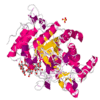
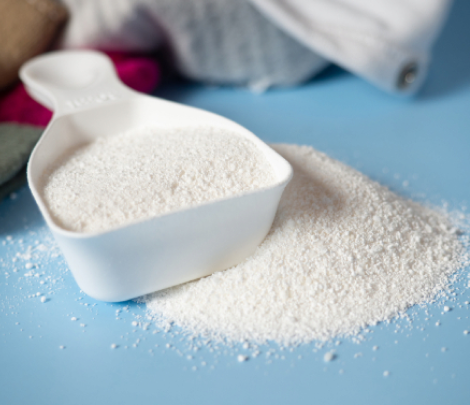

Detergent Enzymes Manufactures In India
Ultreze Enzymes is the leading Detergent Enzymes Manufacturers In India. Chemically manufactured detergents are a major source of water effluents that pollutes the environment. The harmful effects of chemically produced products are well known around the world. Our comprehensive research and vigorous development in the biotech domain assist Ultreze Enzymes to develop eco-friendly detergents that are equally efficient as their counterparts.
Detergent enzymes have dramatically assisted to improve the quality of detergents for households and industrial applications that are much safer and eco-friendly. We uniquely develop proteases, lipases, amylases, and cellulases enzymes that have particular benefits for washing and laundry applications. Ultreze Enzymes reduce energy consumption. It shortens washing times, improves water management and reduces temperature. Ultreze engineers the best detergent enzymes in the market that are environmentally-friendly. We’re also one of the largest enzyme suppliers for detergent manufacturers. Our strong relationship with various dealers allows us to deliver enzymes across the country easily.
Lipase Enzyme For Detergent Industry
Our Processing Flow
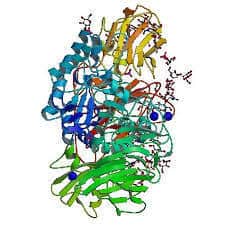
Alkaline Protease
Alkaline protease can effectively remove sweat stain, blood stains, food protein dirt, cream stain and etc, the detergent contains protease will make fabric get perfect effect after washing.
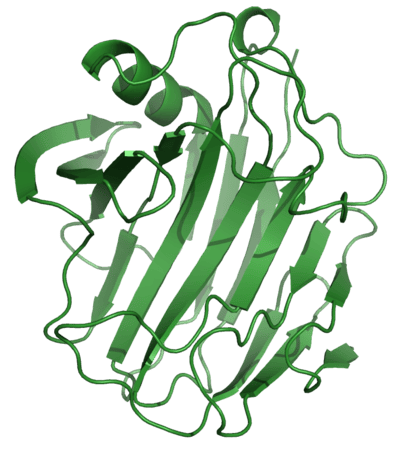
Alkaline Cellulase
Alkaline cellulase effectively remove microfiber on fabric for wear. It also can keep cotton fiber fabric with bright color and good smoothness.
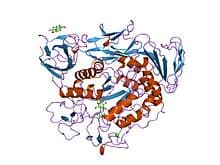
Alkaline Amylase
Alkaline amylase decompose Starches and Dextrins. It also remove dirt on fabric.
Enzymes Used in Detergent & Personal Care
Detozyme-AMYL (Amylase)
Amylase is highly effective at degrading a wide range of commercial food products; most powerful on starch-based soils. amylase facilitate the removal of starch-containing stains, e.g., pasta, potato, gravy, chocolate, and baby food. it can be used as a detergent in restaurant dishwashers to remove insoluble starch residues and the like.
Detozyme-LIP (Lipase)
When used in domestic laundry, lipase lowers environmental pollution and improves a detergent’s capacity to eliminate difficult oil or grease stains.
Detozyme-PRO (Protease)
protease formulated for superior enzyme performance and stability in detergent products, Detergent proteases offered a solution and are being continuously improved. Proteases break down protein stains, Protease Offers good wash performance at low wash temperatures, it Shows better compatibility with other enzyme types than other proteases on the market.
Detozyme-CELL (Cellulase)
Cellulase provides these effects by shaving off the fuzz and pills of cotton fibrils that are generated on the fabric by normal wear and washing. Cellulase Prevents deposition of particulate soils on cotton fabrics, making clothes cleaner and whiter, the cellulases are supplemented to the detergents to improve the fabric smoothness and soil removal without damaging them.
Detozyme-MAN (Mannanase)
The guar and locust bean gum stains left behind by many processed foods and personal care items are what mannanase targets. Mannan molecules are fragmented into little sugars that dissolve in the washing solution by mannanase enzymes, which aid in the removal of these stains. Guar and locust bean gum stains are almost impossible to avoid because the gums are found in so many products. That makes Mannanase a must for laundry detergents that aim to give consumers the performance they demand on a broad range of stains.
Detozyme-PECT (Pectinase)
Pectinase can provide unique stain removal benefits on a wide range of pectin based stains from fresh fruits, such as tomatoes, oranges, bananas and berries.
DetoBlend (Mixture Of Enzymes)
Enzyme blends are employed as functional additives in detergents and aid in the efficient, environmentally responsible, and energy-saving cleaning of clothes and dishes.
DETOBLEND is Blend of Detergent enzymes and made from Amylase, Cellulase, Protease, Lipase, Pectinase and Mannanase enzyme, these enzymes are used to treat Starch, Cellulose, Protein, Oil, Pectin and Mannan contain and break down of it, and make it easily water soluble.
Are you looking for enzymes?
We're Here to Assist
Frequently Asked Questions(FAQ)
The main enzymes used in detergents are protease, amylase, lipase, cellulase, and mannanase. These enzymes target specific types of stains and help break them down, improving the cleaning effectiveness of detergents.
Enzymes in laundry detergents work by targeting specific types of stains. Protease enzymes break down protein-based stains, amylase enzymes tackle starch-based stains, lipase enzymes target oil and grease stains, and cellulase enzymes break down cellulose-based stains. These enzymes speed up the chemical reactions that break down the stains, making them easier to remove during the washing process.
When selecting detergent enzymes, there are several factors to consider. Firstly, consider the types of stains you commonly encounter and choose enzymes that are effective against those specific stain types. Secondly, check for compatibility with your detergent formulation to ensure the enzymes work synergistically. Additionally, consider the enzyme’s stability and activity across a range of temperatures and pH levels. Lastly, evaluate the enzyme’s safety profile, considering factors such as skin sensitivity and environmental impact, to ensure it aligns with your preferences and requirements.

